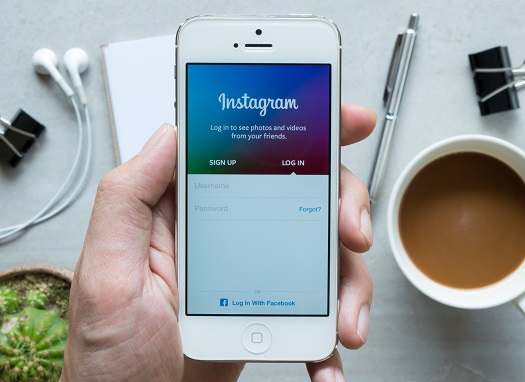-
Tips for becoming a good boxer - November 6, 2020
-
7 expert tips for making your hens night a memorable one - November 6, 2020
-
5 reasons to host your Christmas party on a cruise boat - November 6, 2020
-
What to do when you’re charged with a crime - November 6, 2020
-
Should you get one or multiple dogs? Here’s all you need to know - November 3, 2020
-
A Guide: How to Build Your Very Own Magic Mirror - February 14, 2019
-
Our Top Inspirational Baseball Stars - November 24, 2018
-
Five Tech Tools That Will Help You Turn Your Blog into a Business - November 24, 2018
-
How to Indulge on Vacation without Expanding Your Waist - November 9, 2018
-
5 Strategies for Businesses to Appeal to Today’s Increasingly Mobile-Crazed Customers - November 9, 2018
This is what your Instagram post can reveal about your mental health
The model was built by a team of researchers from Harvard and the University of Vermont.
Advertisement
However, the study found similarities between people who were depressed and the way they posted photos on Instagram.
They looked at the Instagram accounts of 500 workers from Amazon’s Mechanical Turk. The participants were not told that they were evaluating Instagram photos and that the study was focused on depression.
Researchers selected 100 images from each participant. The research found that the computer was able to predict which users were most likely to suffer from depression better than humans. As you might guess, the pictures of people with depression were darker hued, had more blues and grays, and were less bright, suggesting a bleaker outlook. An image with bright colors can be doctored with an Instagram feature called Inkwell that converts colored photos into a black and white image. When the algorithm was applied across random photographs, it had a 70 percent success rate in identifying individuals with depression. These results held even when the analysis was restricted to posts made before depressed individuals were first diagnosed.
Researchers look at almost 44,000 Instagram pictures from volunteers, some who had a history of depression. As might be expected, the photos from depressed participants’ feeds were more likely to be sad and less happy.
The study stated: “These findings demonstrate how visual social media can be harnessed to make accurate inferences about mental health”.
Using social media to psychoanalyse people raises ethical questions around data privacy. In this report, we introduce a methodology for analyzing photographic data from Instagram to predictively screen for depression. More importantly, the algorithm could one day be used as a base for effective mental health detection tool in a digital society. For depressed individuals, the researchers chose the 100 photographs posted before their diagnosis.
The computer program analyzed the nature of the user’s posts. The content of photographs can be coded for any number of characteristics: Are there people present? The more comments a post received, for example, the more likely the poster was depressed – yet the more likes a post got, the less likely the poster was depressed. The connection was so strong that the pair claimed it could be used to detect early signs of mental illness.
These figures are incredibly impressive, researchers say, with the model able to outperform practitioners who carried out a face-to-face patient assessment.
“Social media is just another way that people communicate”, Reece explains over email.
Advertisement
With depression rates around the world rising with each passing year, it has now become more relevant than ever to identity depression early and employ necessary methods to help individuals experiencing this state-of-mind. Brightness. Saturation. Filter type.





























